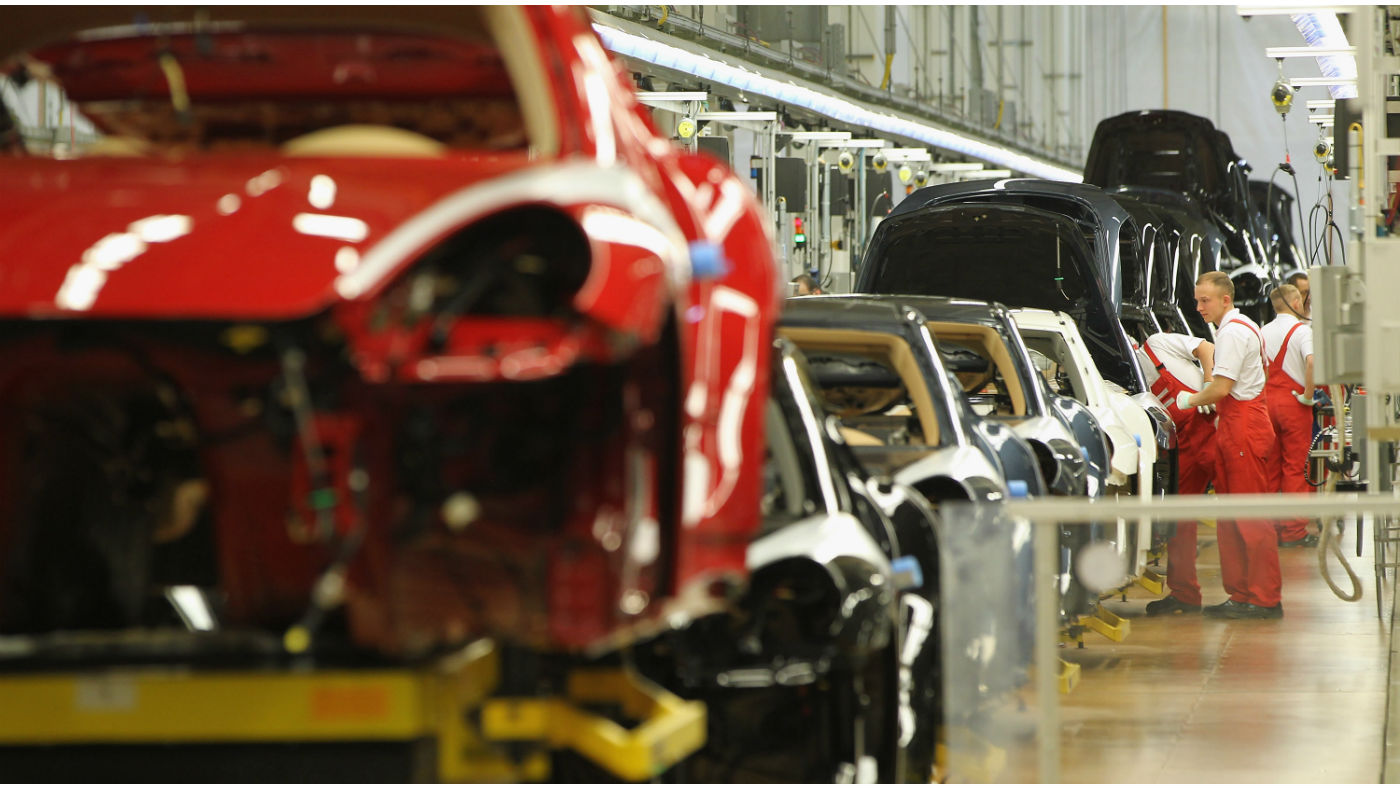German industry 'won't help with Brexit deal'
Business leaders say maintaining single market more a priority than trade deal with UK

A free daily email with the biggest news stories of the day – and the best features from TheWeek.com
You are now subscribed
Your newsletter sign-up was successful
German business leaders have cast doubt on claims they will help the UK secure a beneficial trade deal after Brexit, in a "stark intervention that strikes a blow at the government's EU departure plans", says The Guardian.
Dieter Kempf, head of the German Federation of Industries, said maintaining the integrity of the single market was the priority for German businesses.
"It is the responsibility of the British government" to limit the economic fallout on both sides of the Channel, he told the Guardian, adding: "Over the coming months, it will be extraordinarily difficult to avert negative effects on British businesses in particular." he added.
The Week
Escape your echo chamber. Get the facts behind the news, plus analysis from multiple perspectives.

Sign up for The Week's Free Newsletters
From our morning news briefing to a weekly Good News Newsletter, get the best of The Week delivered directly to your inbox.
From our morning news briefing to a weekly Good News Newsletter, get the best of The Week delivered directly to your inbox.
His view was echoed by Ingo Kramer, president of the confederation of German employers' association.
"The UK will remain a very important partner for us, but we need a fair deal for both sides respecting this principle," he said. "The cohesion of the remaining 27 EU member states has highest priority."
However, John Longworth, a Brexit supporter and former director general of the British Chambers of Commerce, predicted their position would change as negotiations continue.
"We are their biggest export market. There will be pressure on governments to compromise," he said.
A free daily email with the biggest news stories of the day – and the best features from TheWeek.com
Several cabinet ministers, including Brexit Secretary David Davis, have also argued that German carmakers will lobby the Reichstag to ensure a good trade deal for Britain after it withdraws from the bloc.
On Saturday, US President Donald Trump said the US was willing to conclude a "powerful" trade deal with the UK after Brexit.
-
 Political cartoons for February 16
Political cartoons for February 16Cartoons Monday’s political cartoons include President's Day, a valentine from the Epstein files, and more
-
 Regent Hong Kong: a tranquil haven with a prime waterfront spot
Regent Hong Kong: a tranquil haven with a prime waterfront spotThe Week Recommends The trendy hotel recently underwent an extensive two-year revamp
-
 The problem with diagnosing profound autism
The problem with diagnosing profound autismThe Explainer Experts are reconsidering the idea of autism as a spectrum, which could impact diagnoses and policy making for the condition
-
 Epstein files topple law CEO, roil UK government
Epstein files topple law CEO, roil UK governmentSpeed Read Peter Mandelson, Britain’s former ambassador to the US, is caught up in the scandal
-
 Iran and US prepare to meet after skirmishes
Iran and US prepare to meet after skirmishesSpeed Read The incident comes amid heightened tensions in the Middle East
-
 Israel retrieves final hostage’s body from Gaza
Israel retrieves final hostage’s body from GazaSpeed Read The 24-year-old police officer was killed during the initial Hamas attack
-
 China’s Xi targets top general in growing purge
China’s Xi targets top general in growing purgeSpeed Read Zhang Youxia is being investigated over ‘grave violations’ of the law
-
 Panama and Canada are negotiating over a crucial copper mine
Panama and Canada are negotiating over a crucial copper mineIn the Spotlight Panama is set to make a final decision on the mine this summer
-
 Why Greenland’s natural resources are nearly impossible to mine
Why Greenland’s natural resources are nearly impossible to mineThe Explainer The country’s natural landscape makes the task extremely difficult
-
 Iran cuts internet as protests escalate
Iran cuts internet as protests escalateSpeed Reada Government buildings across the country have been set on fire
-
 US nabs ‘shadow’ tanker claimed by Russia
US nabs ‘shadow’ tanker claimed by RussiaSpeed Read The ship was one of two vessels seized by the US military